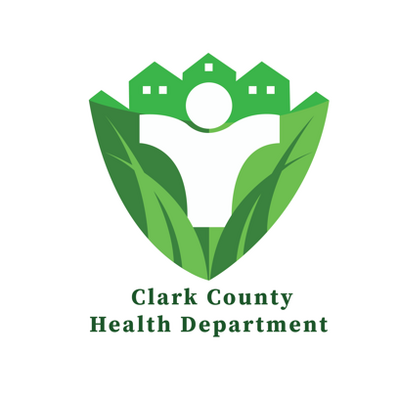Clark County's Lead Public Health Nurse Discusses Measles and How to Protect Yourself
Tuesday, April 8th, 2025 -- 1:00 PM

The U.S. is seeing a severe outbreak of measles cases in some states.
I spoke with Kelsey Wussow, Lead Public Health Nurse with the Clark County Health Department and she discussed measles, symptoms, complications from measles, and the best way to protect yourself from the virus.
Listen to the interview with Kelsey here!
Again, if you’d like to learn more about the measles and how to protect yourself, you can go to the Clark County Health Department’s website (https://www.clarkcountywi.gov/healthdepartment), the Wisconsin Department of Health Services (https://www.dhs.wisconsin.gov/), or the CDC (https://www.cdc.gov/index.html).
1. Can you explain what measles is?
§ Measles is a viral infection that spreads through respiratory droplets when an infected person coughs, sneezes, or even talks. The virus can linger in the air or on surfaces for several hours, making it easy for others to become infected, especially if they’re unvaccinated or not immune to measles.
2. What are the symptoms and who do they intend to infect more?
§ Symptoms of measles usually start with fever, cough, runny nose, and red eyes, followed by a characteristic red, blotchy rash that usually starts on the face and spreads downward.
3. If an individual does get measles, and later recovers, are there complications they can face later in life; can you explain what those are?
§ Measles can lead to a range of complications, some of which can be severe and even life-threatening. These complications are more common in children under 5, adults over 20, and people with weakened immune systems.
§ Some of the potential complications include pneumonia, which is particularly concerning for young children, ear infections, diarrhea and dehydration, pregnancy complications leading to risks to the developing baby, permanent vision loss, malnutrition, and in rare cases, encephalitis (which means swelling of the brain), and even death.
§ At this time, there has been 1 measles-confirmed death in the U.S. in 2025 and 1 death currently under investigation.
4. What is the best way for individuals to protect themselves against measles?
§ Vaccination is key! You’re considered up to date if you have received two doses of the MMR (measles, mumps, and rubella) vaccine. This vaccine is highly effective – after receiving two doses, the vaccine is 97% effective at preventing measles, and provides lifelong protection for most people.
§ The MMR vaccine is recommended as a childhood vaccine with the first dose given at 12 to 15 months of age and the second dose given between the ages of 4 and 6 years old – so typically before children go to school – which is important, as schools are congregate settings, which fosters susceptibility to significant disease transmission; especially with a virus like Measles, that can spread very rapidly.
§ In general, adults should have one dose of MMR. Two doses of MMR vaccine are recommended for adults at high risk for measles, including international travelers, college students, and healthcare personnel.
§ There is a caveat to note: for individuals receiving the inactivated measles vaccine between 1963 and 1967. Most people received the more effective live vaccine at that time – but if you’re unsure, you should check with your healthcare provider; as those individuals may need a booster.
§ Folks born before 1957 are considered immune, as Measles was widespread at that time and most people were naturally exposed to the virus and are assumed to be immune.
§ If you are unsure about your vaccination status, you can inquire with your healthcare provider or access your immunization records through the public immunization record access website, called the Wisconsin Immunization Registry. Information on how to access the site, can be obtained on the Health Department’s webpage – clarkcountywi.gov/
§ The Clark County Health Department can vaccinate children and adults who meet our program requirements. We cannot provide the MMR vaccine to privately insured people. If you have private insurance, please outreach to your healthcare provider. For individuals without health insurance or who are enrolled or eligible for Medicaid, I will direct you to our immunization hotline – the number is 715-743-5292. Again, 715-743-5292.
5. Final thoughts?
§ WI has the 2nd lowest measles vaccination rate in the country – which makes unvaccinated Wisconsinites extremely vulnerable to the measles virus.
§ At this point, given the landscape of disease spread in other states, it unfortunately not a matter of if, but when – Measles catches up to Clark County.
§ Vaccination is one important tool we can utilize but we should also be adhering to other common disease transmission practices of washing our hands, covering coughs and sneezes, and staying home when we are sick! These are simple and effective measures that we can all follow, to protect our neighbors.
§ Although many people have reported mild illness with past measles infection, this virus can affect others differently.
§ It can be extremely difficult to navigate the conflicting information you may obtain through various digital platforms such as social media, websites, and blogs. A key component of making informed decisions related to health, is to obtain information from a trusted messenger, like a clinician who has the subject-matter expertise. Thank you!
Feel free to contact us with questions and/or comments.




